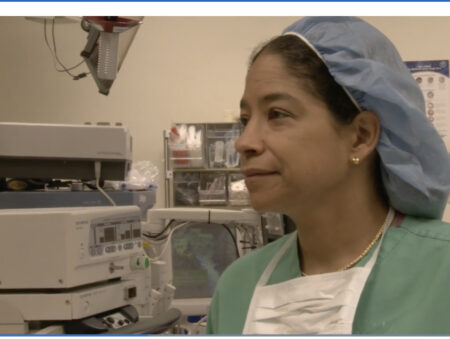In her presentation at July’s Black Health Matters Virtual Summit, Carol L. Brown, M.D., offered an encyclopedia of reasons why cancer research clinical trials must include Black, other non-white and poor patients. But few resonated more than one of the first reasons she gave, which accompanied the horrifying statistics on the disparities in mortality rate between Black cancer patients and every other group.
The vast differences in breast, lung, colon and prostate cancer mortality rates were bad enough, said Dr. Brown, a gynecologic oncology surgeon, director of the Office of Diversity Programs in Clinical Care, Research and Training at the Memorial Sloan Kettering Cancer Center, and the second-ever African American president of the Society of Gynecologic Oncology.
Then there were the rates for uterine cancer—a five-year survival rate that is 20 percent lower for Black women as compared to white, a gap that has stayed constant for 30 years.
“That’s crazy, and that’s unacceptable,’’ Dr. Brown said.
Her colleagues have worked to close the gap, she said, partly by becoming a resource for patients seeking clinical trials to enter, and largely because the Memorial Sloan Kettering Cancer Center focuses on giving equal access to trials to all of its patients, regardless of race, income or ability to pay. While nationwide Blacks and other people of color make up a fraction of clinical trial participants, Dr. Brown said, one out of every three patients treated at the center participates in them.
Taking part in a trial, she said, “is actually the best way to level the playing field for Black people affected by cancer.’’
Among the many benefits for Black patients include early access to treatment proven by the trials to be effective before it is available to the general public, and access to the best physicians in the best facilities.
“It’s a really good way to make sure that you’re getting very intense, high-quality care,” Dr. Brown said, pointing to advances in uterine cancer treatment that emerged from trials conducted by her Memorial Sloan Kettering colleagues that zeroed in on the biological differences in the types of cancers that disproportionately affected Black women.
As an example: Memorial Sloan Kettering’s website lists 12 clinical trials currently underway solely for uterine cancer, including one on the effect of acupuncture and another on how a keto diet affects treatment of overweight patients. Dr. Brown pointed out that such alternative treatments were purposely included because of patients’ desire to know all their options.
Cancer.gov, the site for the National Cancer Institute, also lists available clinical trials nationwide, for those outside of Memorial Sloan Kettering’s service area.
To help their own treatment and to improve the research and results, Dr. Brown said, patients must advocate for themselves and directly ask their primary care physician or oncologist about joining clinical trials. Consider that if the patient doesn’t, possibly no one will: “Physicians often have biases and are not educated about the groups they’re serving.’’
And the patients have to overcome their fear, not only of their own disease, but of the history of negligence and abuse toward Black patients.
Dr. Brown said she is asked often about whether trials can be trusted, with the memory of the notorious Tuskegee experiments in mind. Clinical trials are not experiments, she made clear, and patients are not signing up to be lab rats.
“There’s nothing for you to be afraid of, except not getting treatment for your cancer and not finding out about it,’’ she said.
—David Steele





